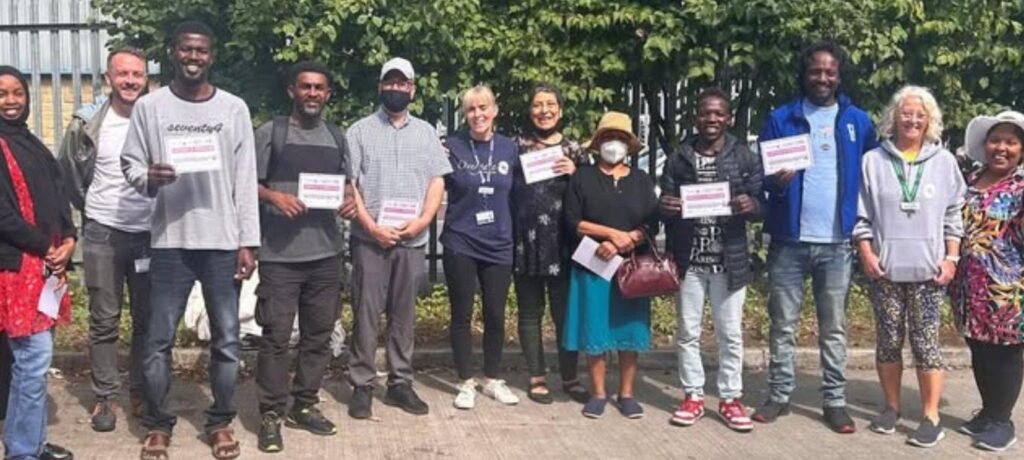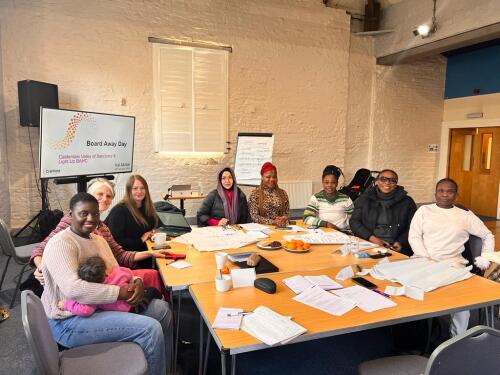For people who are seeking asylum, volunteering can be a fantastic way to meet new people, explore the local area and maintain their confidence as professionals. For those who have received refugee status, volunteering can also be a step towards employment, a chance to integrate into the community or simply a way to ‘give back’.
Here in Calderdale, people who are seeking sanctuary and those with refugee status volunteer far and wide – from charity shops, to food banks, to supporting fellow migrants as caseworkers. If your organisation would like to encourage people who are seeking sanctuary to volunteer, here are some tips from a few of our member organisations, including St. Augustine’s Centre, Overgate Hospice and Elland & District Foodbank.

- Don’t use complicated sign-up forms. The asylum process already involves so much red tape – you don’t want to put potential volunteers off by asking them to complete reams of additional paperwork, especially those with limited English literacy.
- Plan for the unexpected! The months (if not years) spent seeking asylum, and the first few months after receiving refugee status, are filled with lots of waiting around but also lots of last-minute appointments and changes, from meetings with solicitors and caseworkers, to Home Office interviews, to no-notice changes in accommodation. One organisation, where volunteers only meet once a week, gets around this issue by keeping people who are seeking sanctuary off the official rota, and treating them as welcome extra pairs of hands if they can make the sessions.
- Consider whether you really need references. People who are going through, or have recently been through, the asylum system are unlikely to have known someone local for long enough that the person would be comfortable giving them a character reference. One organisation we spoke to uses a member of staff from St. Augustine’s Centre in place of a traditional reference when engaging with volunteers who are seeking asylum.
- Ask for an emergency contact, but not for a ‘next of kin’. People who are seeking sanctuary may have left all family members behind, or lost them in a conflict or other disaster. While it is reasonable to ask for an emergency contact, which could be a roommate or the duty number for a hotel, avoid asking for ‘next of kin’ information, which might prove triggering for the individual and may not be useful information in case of an emergency.
- Have cash on hand to reimburse travel expenses, or purchase bus tickets in advance. Most people who are seeking asylum have to subsist on a really small allowance from the Home Office, and even after gaining refugee status – and therefore the right to work – it can take a long time for people to obtain gainful employment. You should do everything you can to minimise your volunteers’ out-of-pocket expenses, and if any do occur, make sure you have cash on hand to reimburse people immediately, rather than requiring them to wait until the end of the week or the month.
